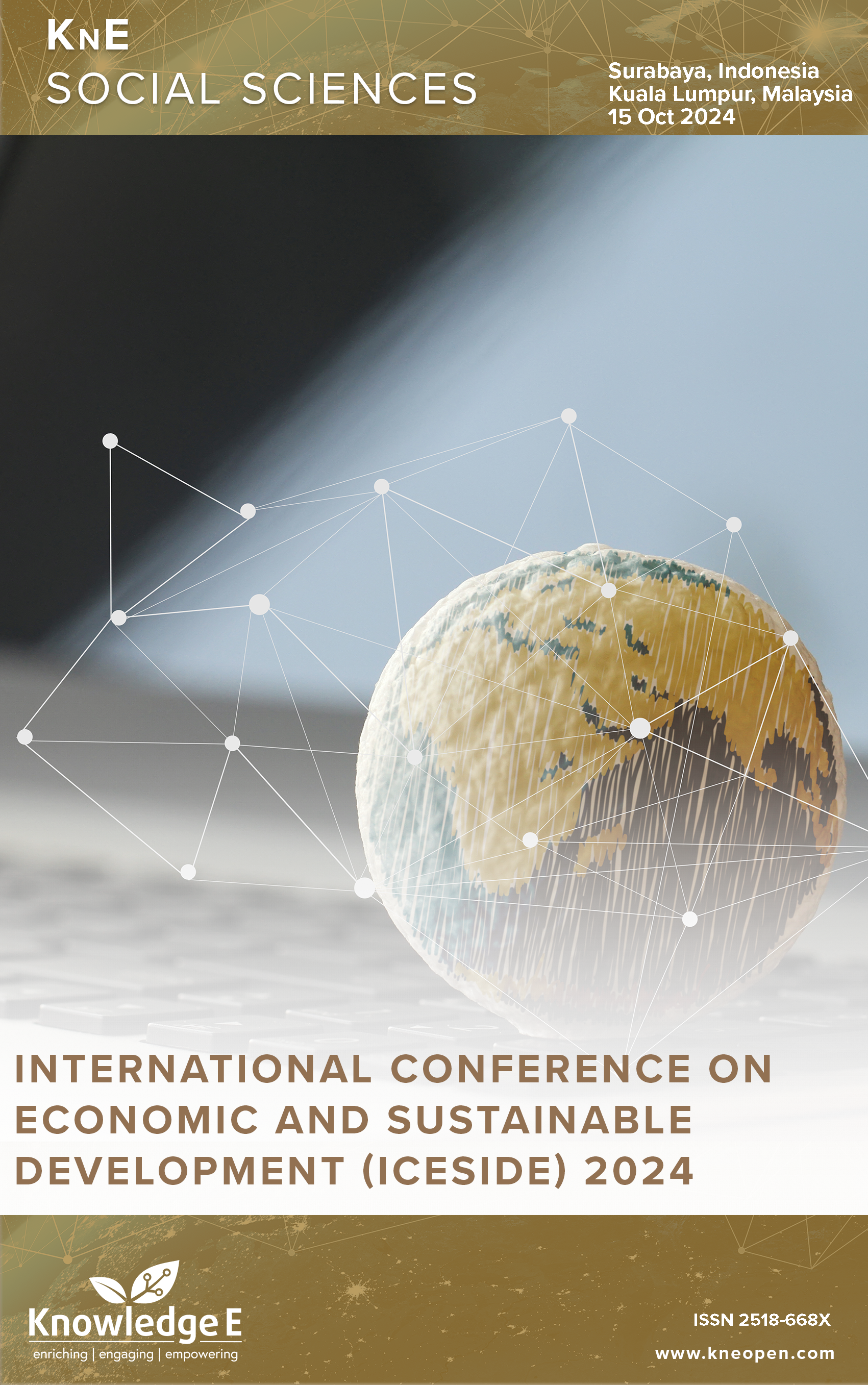Does Financial Inclusion Influence Tourism Performance? An Empirical Study in Indonesia
DOI:
https://doi.org/10.18502/kss.v10i5.18120Keywords:
financal inclusion, tourism development, dynamic panelAbstract
This article highlights the significant role that financial services play in enhancing economic growth, particularly in the context of tourism, which is a vital contributor to the Indonesian economy. The study reveals that while the tourism sector has shown resilience and recovery post-COVID-19, with domestic tourist trips surpassing pre-pandemic levels, there remains a critical gap in the literature regarding the interplay between tourism and financial inclusion. This research employs a quantitative methodology and employs a dynamic panel method to conduct an analysis of data gathered from 33 provinces between the years 2019 and 2023. In addition to concentrating on important factors like the utilisation of electronic money and the proportion of third-party funds that contribute to GDP, we will also be looking at regional macroeconomic data, namely per capita income and economic growth. The results of this research indicate that there is a considerable connection between the use of e-money, which is a component of the digital payment system, and the impact of macroeconomic factors on the expansion of domestic tourism.
References
Demirgüç-Kunt A, Klapper L, Singer D, Ansar S. Financial Inclusion, Digital Payments, and Resilience in the Age of Covid-19. 2022.
Bank Indonesia. Monthly Indonesian Financial System Statistic. 2023.
Shi Y, Swamy V, Paramati SR. Does financial inclusion promote tourism development in advanced and emerging economies? Appl Econ Lett. 2021;28(6):451–8. DOI: https://doi.org/10.1080/13504851.2020.1761521
He Z, Song X. How Does Digital Finance Promote Household Consumption: An Analysis Based on Micro Survey Data. China Finance and Economic Review. 2020;9(4):24–45.
Wang Q, Yang L, Yue Z. Research on development of digital finance in improving efficiency of tourism resource allocation. Resources. Environ Sustain (Singap). 2022;:8. DOI: https://doi.org/10.1016/j.resenv.2022.100054
Ministry of Tourism and Creative Economy. Infographics Statistics Data Macro Indicators Tourism & Creative Economy. 2020.
Gopalan S, Khalid U. Promoting outbound tourism through financial inclusion: evidence from emerging markets and developing economies. Annals of Tourism Research Empirical Insights. 2023 May;4(1):100086. DOI: https://doi.org/10.1016/j.annale.2023.100086
Islam Y, Mindia PM, Farzana N, Qamruzzaman M. Nexus between environmental sustainability, good governance, financial inclusion, and tourism development in Bangladesh: evidence from symmetric and asymmetric investigation. Front Environ Sci. 2023 Feb;10:10. DOI: https://doi.org/10.3389/fenvs.2022.1056268
Panggabean MS, Sipahutar TT. Analysis of the Role of Tourism in the Economy in Indonesia. International Journal of Advances in Social and Economics. 2019 Dec;1(6). https://doi.org/10.33122/ijase.v1i6.126.
Fahrul Ridho W. Peran Bisnis Pariwisata Dalam Inklusi Keuangan. Bullet:Jurnal Multidisiplin Ilmu [Internet]. 2023;2(01):104–8. Available from: https://journal.mediapublikasi.id/index.php/bullet
Mujiatun S, Trianto B, Cahyono EF, Rahmayati. The Impact of Marketing Communication and Islamic Financial Literacy on Islamic Financial Inclusion and MSMEs Performance: Evidence from Halal Tourism in Indonesia. Sustainability (Switzerland). 2023 Jul 1;15(13). DOI: https://doi.org/10.3390/su15139868
Ramadhaniah MA. The Role of Tourism in The Indonesian Economy. Jurnal Riset Pembangunan. 2020;2(2):98–113. DOI: https://doi.org/10.36087/jrp.v2i2.60
Roodman D. How to do xtabond2: an introduction to difference and system GMM in Stata. Stata J. 2009;9(1):86–136. DOI: https://doi.org/10.1177/1536867X0900900106
Blundell R, Bond S. Initial conditions and moment restrictions in dynamic panel data models. J Econom. 1998;87(1):115–43. DOI: https://doi.org/10.1016/S0304-4076(98)00009-8
Panggabean MS, Sipahutar TT. Analysis of the Role of Tourism in the Economy in Indonesia. International Journal of Advances in Social and Economics. 2019 Dec;1(6). https://doi.org/10.33122/ijase.v1i6.126. DOI: https://doi.org/10.33122/ijase.v1i6.126

